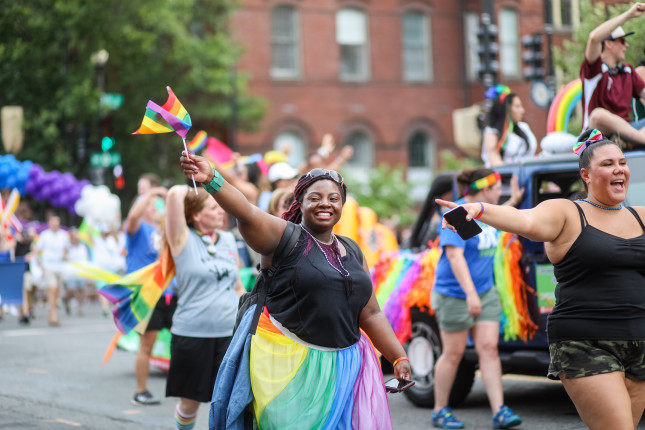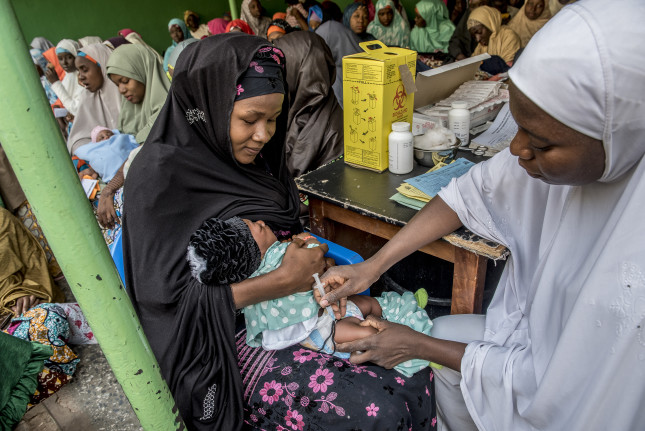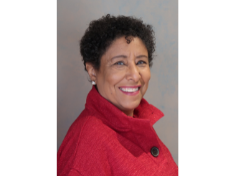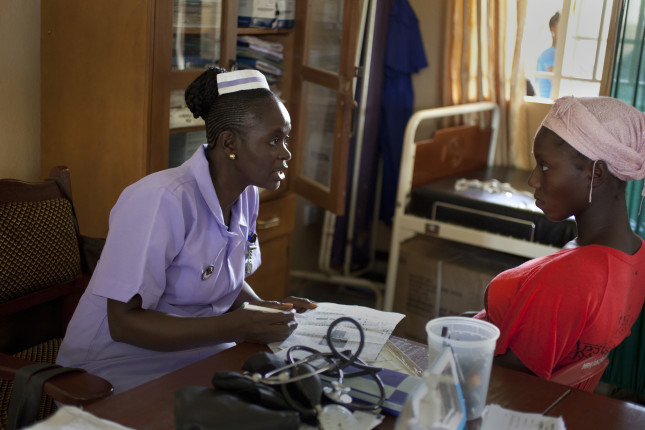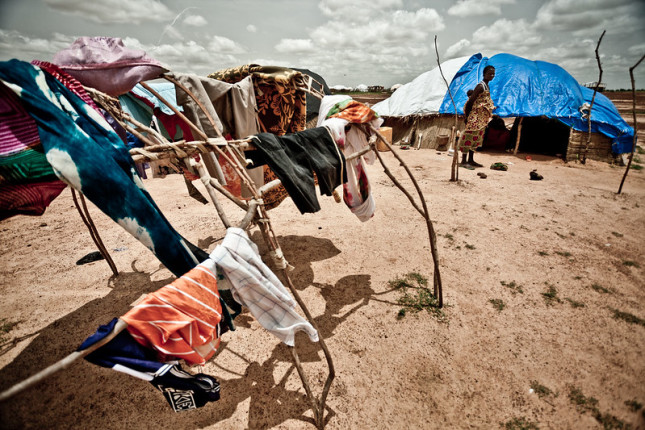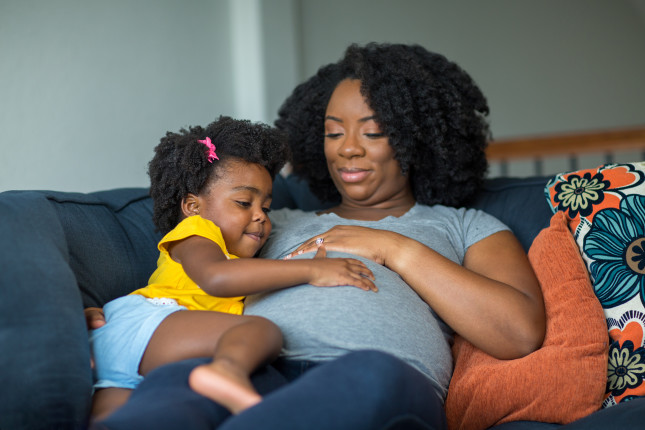Hannah Chosid
Hannah Chosid is a former staff intern with the Wilson Center's Maternal Health Initiative. Her research interests include sex education policy, contraceptive access and use, and incarcerated motherhood.
Hannah earned a B.A. in Sociology of Law, Justice, and Social Change from the University of Michigan, where she was involved in research and activism regarding campus sexual assault.
-
We Have to Put the Last Mile First: Ensuring Sexual and Reproductive Health for All
›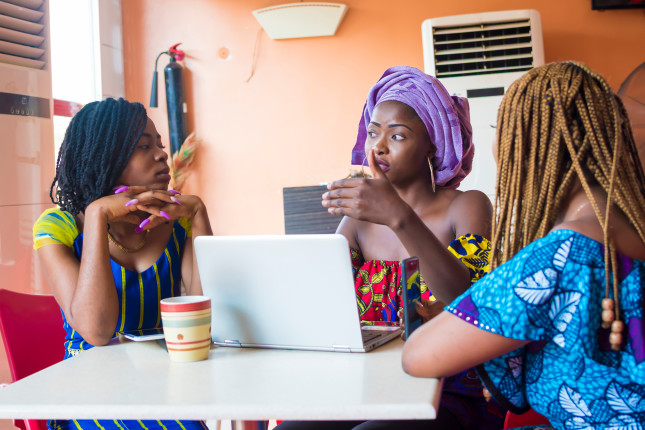
Whether marginalized populations, such as adolescents, LGBTQ+ people, migrant workers, and sex workers are included in health services can be a “litmus test” of our progress towards universal health coverage (UHC), said Sivananthi Thanenthiran, Executive Director of Asian-Pacific Resource and Research Centre for Women (ARROW). Thanenthiran spoke at a recent Wilson Center event with the United Nations Population Fund (UNFPA) and the World Health Organization (WHO) Department of Sexual and Reproductive Health and Research about the importance of engaging stakeholders in sexual and reproductive health (SRH) to achieve UHC for all. In SRH services, the most marginalized and most vulnerable populations are often left out, she said. When engaging stakeholders, representatives from these groups must be included to ensure equity in healthcare services.
-
The Cost of Care: How the COVID-19 Pandemic Has Exacerbated the Baby Bust
› The decision to have a child usually requires a feeling of stability and confidence in the future, says Natascha Braumann, Director of Global Government and Public Affairs for Fertility at EMD Serono, on this week’s episode of Friday Podcasts. But with COVID-19, especially in the first months of the pandemic, there was no feeling of stability. “No one knew what was going to happen.”
The decision to have a child usually requires a feeling of stability and confidence in the future, says Natascha Braumann, Director of Global Government and Public Affairs for Fertility at EMD Serono, on this week’s episode of Friday Podcasts. But with COVID-19, especially in the first months of the pandemic, there was no feeling of stability. “No one knew what was going to happen.” -
Beyond Pride: Ensuring Affirming, Respectful Sexual and Reproductive Healthcare for LGBTQ+ Communities
›
In June 1969, the Stonewall Uprising in Manhattan served as a critical tipping point for the Gay Liberation Movement in the United States. Each June, communities around the world celebrate Pride Month to honor this struggle and continue fighting for a more equal future. More than 50 years after Stonewall, Lesbian, Gay, Bisexual, Transgender, and Queer or Questioning (LGBTQ+)* people in the United States struggle to access culturally competent and respectful sexual and reproductive health care.
-
Vaccines, Family Planning, and Freedom from Violence: Achieving Equity for All Women and Children
›
“From birth, from almost from cradle to grave, girls have been seen as some sort of baggage,” said Shamsa Suleiman, Project Management Specialist for Gender and Youth at the U.S. Agency for International Development (USAID), Tanzania. Suleiman spoke at a recent Wilson Center event with USAID MOMENTUM Country and Global Leadership about balancing power dynamics to achieve equity for all women and children in maternal, child, and adolescent health, and family planning. Home should be a safe space, said Suleiman. But for many girls, it no longer is. To escape the poverty and pressures at home, including early marriage and other forms of gender-based violence, some girls leave, said Suleiman. “Girls are trying to escape the safe spaces.”
-
A Conversation with Dr. Nahid Toubia: Bodily Autonomy and the 2021 State of World Population Report
›Africa in Transition // Dot-Mom // Friday Podcasts // May 28, 2021 // By Hannah Chosid & Deekshita Ramanarayanan Bodily autonomy is something almost innate in us, and yet also a Eureka moment for many people, says Dr. Nahid Toubia, Director for the Institute of Reproductive Health and Rights in Sudan on this week’s episode of Friday Podcasts. “Every human being really has the right to own their body, to own their decisions, to own their choices regarding their life, their futures, how they want to live, who they want to partner, whether they want to have children or not, what kind of families they want to have,” she says. “So, all of these choices are all wrapped up in this concept of body autonomy.”
Bodily autonomy is something almost innate in us, and yet also a Eureka moment for many people, says Dr. Nahid Toubia, Director for the Institute of Reproductive Health and Rights in Sudan on this week’s episode of Friday Podcasts. “Every human being really has the right to own their body, to own their decisions, to own their choices regarding their life, their futures, how they want to live, who they want to partner, whether they want to have children or not, what kind of families they want to have,” she says. “So, all of these choices are all wrapped up in this concept of body autonomy.” -
State of the World’s Midwifery Report 2021: Follow the Data, Invest in Midwives
›
“Every day in every part of the world, midwives save the lives of women and babies and promote the health and well-being of entire communities,” writes UNFPA Executive Director Dr. Natalia Kanem in honor of International Day of the Midwife. “They deserve our respect and gratitude, but that is not enough. Midwives deserve greater investment in their capabilities, and workplaces that empower them and fully acknowledge their skills and contributions.” Investment in midwifery could save millions of lives per year – an estimated 4.3 million annually by 2035.
-
Building Resilience in the Sahel in an Era of Forced Displacement
›
“The impacts of displacement present major challenges at every level of decision-making, but the opportunities for interventions that build resilience to climate change, foster social cohesion, and address gender and other disparities—well they’re also very real as well,” said Ambassador Mark Green, President, Director, and CEO of the Wilson Center, during his opening remarks at a recent event hosted by the Wilson Center and Population Institute to explore innovative approaches to addressing the underlying drivers of forced displacement in the Sahel.
-
Black Maternal Health Week 2021 Achieves Historic White House Recognition
›
“This week is Black Maternal Health Week, and make no mistake, Black women in our country are facing a maternal health crisis. Black women are two to three times more likely to die in connection with childbirth than other women. We know the primary reasons why—systemic racial inequities and implicit bias,” said Vice President Kamala Harris at a White House Roundtable she hosted with Ambassador Susan Rice in honor of Black Maternal Health Week. The event was the first event of its kind at the White House—Black women who have experienced loss and complications during pregnancy, childbirth, and postpartum were invited to share their experiences and their work in Black maternal health advocacy and research.


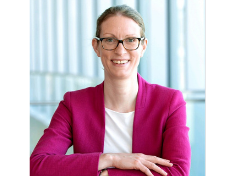 The decision to have a child usually requires a feeling of stability and confidence in the future, says Natascha Braumann, Director of Global Government and Public Affairs for Fertility at EMD Serono, on this week’s episode of Friday Podcasts. But with COVID-19, especially in the first months of the pandemic, there was no feeling of stability. “No one knew what was going to happen.”
The decision to have a child usually requires a feeling of stability and confidence in the future, says Natascha Braumann, Director of Global Government and Public Affairs for Fertility at EMD Serono, on this week’s episode of Friday Podcasts. But with COVID-19, especially in the first months of the pandemic, there was no feeling of stability. “No one knew what was going to happen.”